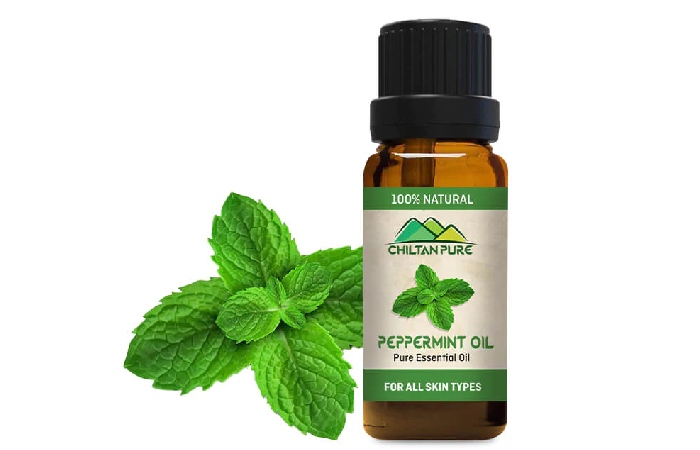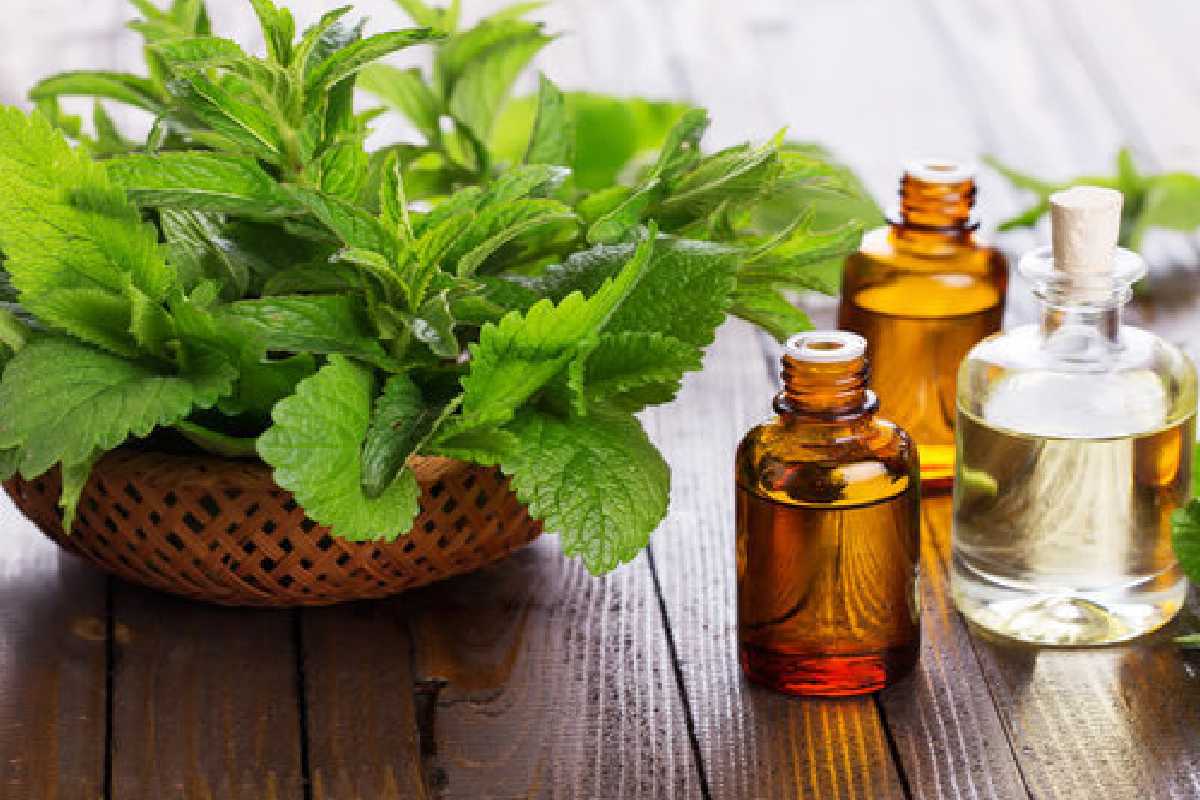Table of Contents
Introduction:
Peppermint oil, derived from the peppermint plant (Mentha x piperita), has been utilized for centuries due to its numerous health benefits. This versatile essential oil is obtained through steam distillation of the plant’s leaves and flowers. Peppermint oil is renowned for its refreshing aroma and cooling sensation, making it a popular choice in various applications, ranging from aromatherapy to skincare.

History and Extraction of Peppermint Oil
Peppermint, a hybrid mint resulting from the crossing of water mint and spearmint, has a rich history dating back to ancient civilizations such as Greece, Rome, and Egypt. It was highly regarded for its therapeutic properties, particularly in treating digestive disorders. Peppermint oil is extracted through steam distillation, where the leaves and flowers of the plant are subject to steam, and the resulting vapors are collected and condensed into the concentrated oil.
Aromatherapy and Relaxation
Peppermint oil widely uses in aromatherapy due to its refreshing scent and ability to promote relaxation. When inhaled, it vapor can positively impact mental fatigue, providing clarity and focus and reducing stress and anxiety. The refreshing aroma of it can uplift mood and create a sense of calmness, making it an excellent choice for aromatherapy sessions.

Digestive Health and IBS Relief
It relieves digestive ailments, including indigestion, bloating, and stomach cramps. Its active ingredient, menthol, helps relax the gastrointestinal tract muscles, promoting smooth digestion and relieving the symptoms associated with irritable bowel syndrome (IBS). Studies have shown that enteric-coated peppermint oil capsules can improve irritable bowel syndrome symptoms in adults and relieve abdominal pain and bowel irregularities.
Headache and Muscle Relief
The cooling sensation of peppermint oil makes it a popular remedy for headaches and muscle tension. When topically applied, diluted it can be soothing, relieving tension headaches and reducing muscle soreness. Its analgesic properties make it an effective natural remedy for minor aches and pains.
Respiratory Support
Peppermint oil possesses expectorant properties that can help relieve congested airways and make breathing easier. Inhaling peppermint oil vapor or using it for vapor inhalation can temporarily relieve nasal congestion, sinus infections, and cold symptoms. Adding a few drops of peppermint oil to a diffuser during winter can support respiratory health.
Chemical Composition of Peppermint Oil
It derived from the peppermint plant (Mentha x piperita), possesses a complex chemical composition that contributes to its therapeutic properties and distinctive aroma. The main active compounds in peppermint oil are menthol, menthone, and menthyl acetate. However, it also contains a variety of other constituents that work synergistically to create its unique characteristics.
Menthol is its most abundant compound and is responsible for its cooling sensation. It provides a refreshing and invigorating effect when applied to the skin or inhaled. Menthol has analgesic properties, effectively relieving pain and soothing sore muscles. Additionally, it found to help alleviate respiratory congestion and reduce symptoms of coughs and colds.
Menthone is another significant component of it and contributes to its minty aroma. It provides a stimulating and uplifting effect, making it a popular choice for aromatherapy. Menthone has been studied for its antimicrobial properties and may help reduce inflammation.
Menthyl acetate adds sweet and fruity notes to the aroma profile of peppermint oil. It has calming and relaxing properties, which can aid in reducing stress and promoting relaxation. Menthyl acetate commonly uses in perfumes and cosmetic products for its pleasant scent.
Oral Health and Fresh Breath
It is a common ingredient in oral care products due to its antimicrobial properties and refreshing taste. It can fight bad breath, prevent plaque build-up and relieve gingivitis. In addition, it has mild analgesic properties and temporarily relieves toothaches and mouth ulcers.
Natural Insect Repellent
The strong aroma of peppermint oil acts as a natural insect repellent, making it an excellent alternative to chemical-based repellents. Itcan repel mosquitoes, ants, spiders, and other unwanted pests. Mix a few drops of peppermint oil with water and spray on problem areas or apply to the skin to repel bugs without exposure to harmful chemicals.
Precautions and Considerations
Although peppermint oil offers numerous benefits, it is important to exercise caution and observe certain precautions. It should not take in its pure form and should always dilute before topical application. Doing a patch test before applying it topically is advisable to check if the skin is sensitive or allergic. It should not apply to the face or chest of infants and young children as it can affect breathing.
Additionally, it’s important to consult a doctor before using it, especially if you have an underlying medical condition, are pregnant or breastfeeding, or are taking any medications that may interact with it.
Conclusion
Peppermint oil is a versatile essential oil with many uses and benefits. It has become a popular choice for natural remedies, from its aromatic properties in aromatherapy to its beneficial effects on digestive health, headaches, respiratory support, oral care, and insect repellent. However, it is crucial to use peppermint oil responsibly, adhering to proper dilution and considering individual circumstances and precautions. By harnessing the power of it, you can increase your well-being and enjoy the many therapeutic properties of this remarkable oil.

